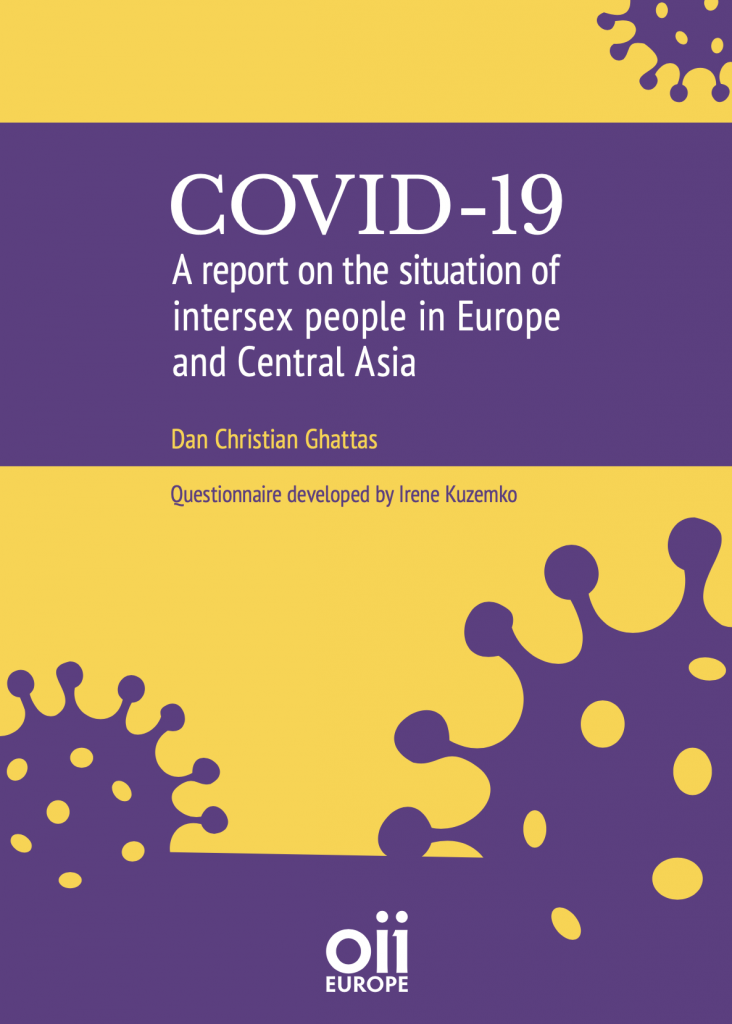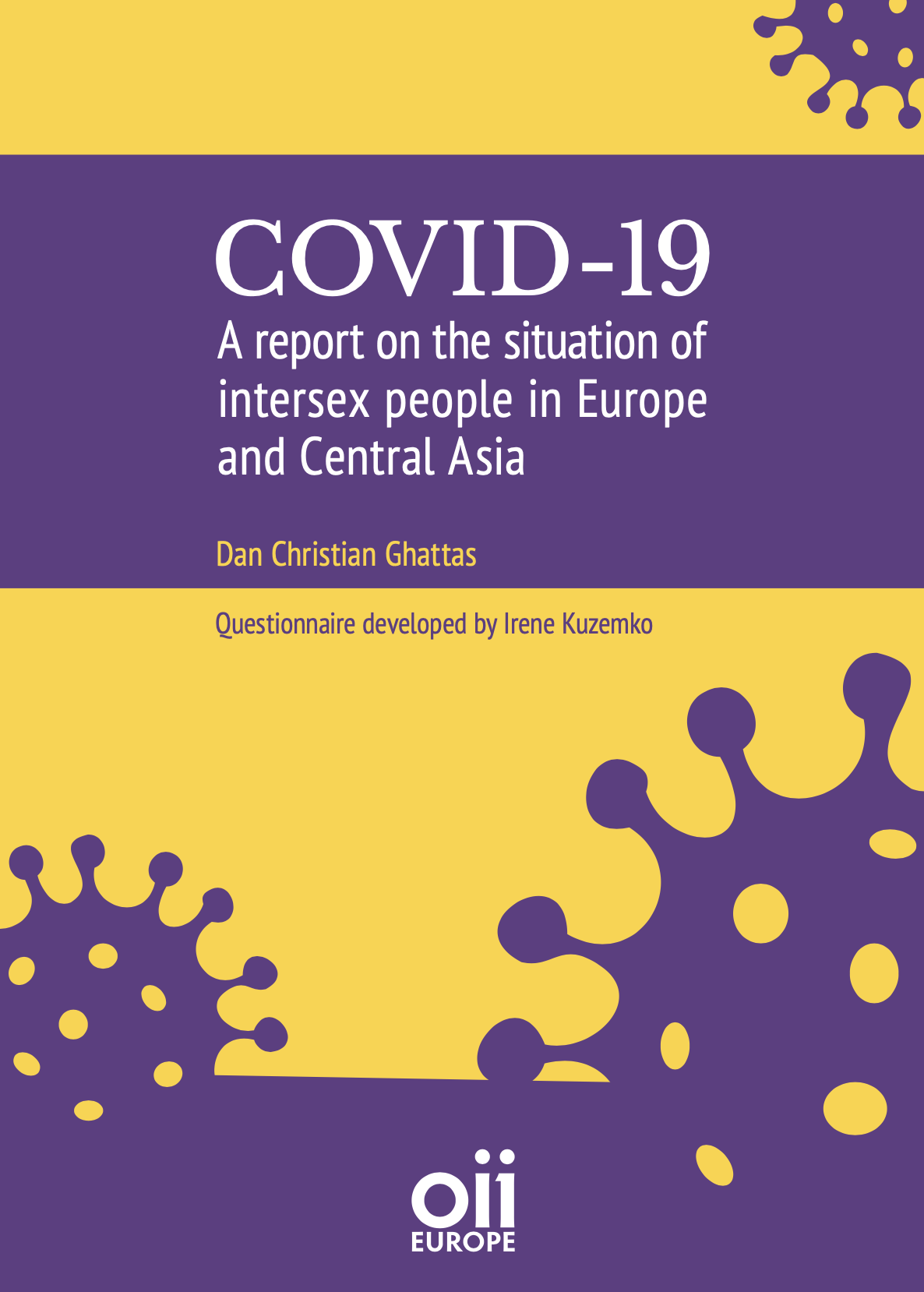Survey shows: intersex people are highly vulnerable during the Covid-19 pandemic
Press Release 09. December 2020 (Download this press release as PDF)

Today, 9th of December 2020, OII Europe published the survey report ”Covid-19. A report on the situation of intersex people in Europe and Central Asia”. This interex-led survey is the first in Europe and Central Asia to specifically focus on the impact of Covid-19 on intersex individuals. It is part of a global project, conducted by the International Intersex Community, that aims to increase knowledge about the situation of intersex people in times of the pandemic.
“Already before the Covid-19 pandemic, intersex people were among the most vulnerable groups of the general population. The findings of the EU Fundamental Rights Agency (FRA) 2019 EU-LGBTI II Survey have confirmed this for many areas of live, for example regarding access to health and health care, income, housing and safety. The pandemic has only increased the risks for our community”, says Dan Christian Ghattas, Executive Director of OII Europe.
One of the most important findings of this survey is the highly increased risk for intersex people to not be able to access health care due to their history of medical trauma, even when infected with Covid-19.
“Medical trauma, acquired through unconsented, non-necessary medical interventions and treatment impact strongly on intersex people in this pandemic,” explains Irene Kuzemko, Secretary of OII Europe and continues: “Intersex people’s problems are amplified during the Covid-19 crisis because they relive their previous trauma through actual contact or being at risk to be in contact with medical doctors and hospitals, aggravated because the societal and medical environments do not account for their trauma.”
The high percentage of increased mental health issues amongst the respondents represents another worrying, though not surprising, finding, as mental health issues acquired by intersex people through the violations of their physical and psychological integrity and through the stress of living invisible, in isolation and with stigma and taboo make intersex individuals more vulnerable.
In addition, the pre-existing lack of educated psychological counselling makes it harder for intersex people to receive help; this situation has been aggravated during the Covid-19 crisis. Of all respondents, 62% reported a worsening of their mental health, and 21% are experiencing a relapse of their previous mental health issues due to the pandemic.
“This report shows the alarming impact the COVID-19 pandemic has on the lives of intersex people in Europe. Mental health, psychical health and financial situation have worsened dramatically since the start of the pandemic”, points out Kitty Anderson, Co-Chair of OII Europe: “Regarding their financial situation, many intersex people are experiencing financial problems and/or income reduction as a result of the pandemic. Some participants are now struggling with surviving.”
Other areas covered by the survey include the effects of the pandemic on intersex people in the area of housing, income and last, but not least, the additional challenges that Covid-19 puts on intersex activism.
— END —
Update 13.01.2025: Two other reports added
In 2020, OII Europe shared its Covid-19 survey questionnaire with the global intersex movement to adapt and use in their respective regions. As a result, two regions released their own reports:




